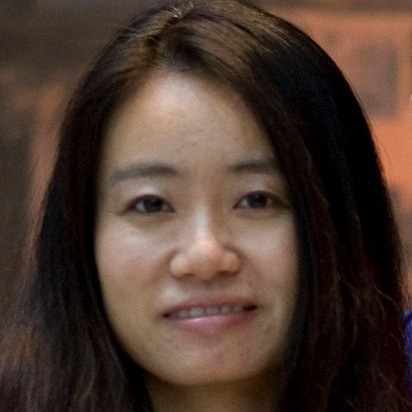NIH Graduate Training Program
The Predoctoral Training Program (T32) in Biological Data Science is funded by the National Institutes of Health/NIGMS award T32GM128596.
NIH Graduate Training Program
The Predoctoral Training Program (T32) in Biological Data Science is funded by the National Institutes of Health/NIGMS award T32GM128596.
Overview
Due to genomic technologies, electronic medical records, and digitized high-throughput experiment readouts, building an independent biomedical research career requires fluency in data science. While this challenge is often addressed with basic skill building for biomedical doctoral students, there is less support for biomedical trainees with significant skills in computational and data sciences. These doctoral students doing data-driven biomedical research may be siloed, are rarely trained to critique quantitative approaches, and often develop computational methods that are difficult for their thesis lab to maintain and update. Data science curricula and workshops are often stewarded by computer scientists and statisticians and rarely focus on biological data or feedback from biological models to methods development. There is an urgent need to develop centralized interdisciplinary training focused on fostering Biological Data Scientists: scientific dual citizens, whose research is motivated by biological systems and who develop quantitative methods for analyzing large-scale datasets. The established Biological Data Science training community at Brown University is maintained by 29 engaged faculty mentors across multiple disciplines who jointly and actively mentor our NIH-supported predoctoral trainees each year. Our activities include: graduate seminars focused on extensive peer review of methods for analyzing biological data, a program retreat featuring data science workshops developed by trainees with an emphasis on rigor and reproducibility, a near-peer mentoring network, and a series of professional development events for interdisciplinary researchers.
Recent Publications & Achievements
Program Directors
-

Sohini Ramachandran
Hermon C. Bumpus Professor of Biology and Data Science, Professor of Computer Science, T32 Graduate Trainer -

Bjorn Sandstede
Alumni-Alumnae University Professor of Applied Mathematics, Chair of Applied Mathematics -

Eliezer Upfal
Rush C. Hawkins University Professor of Computer Science -

Zhijin Wu
Director of the Doctoral Program in Biostatistics, Professor of Biostatistics
About the Ph.D. program in Computational Biology